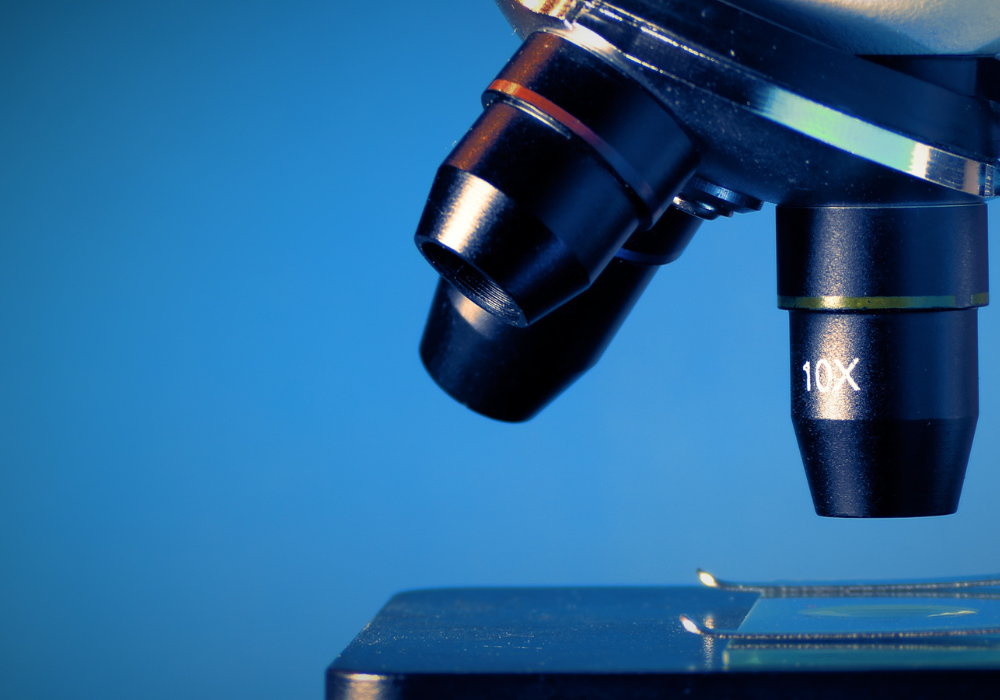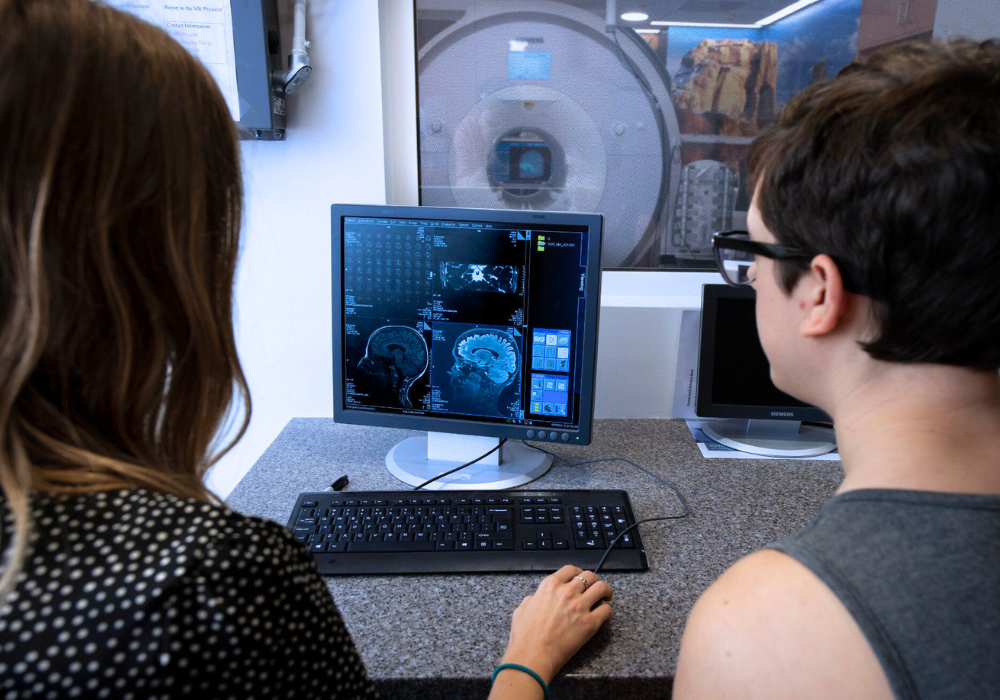Department Doctoral Programs
The School of Biological Sciences offers graduate training in a collaborative environment with several schools and graduate programs. This provides excellent research training and professional development for graduate students pursuing the doctorate. Training opportunities include broad areas of Biological, Biomedical and Environmental Sciences including Neuroscience, Immunology and Pathogenesis, Cancer Biology, Developmental and Stem Cell Biology, Systems and Computational Biology, Genomics, Structural Biology, Ecology, and Evolutionary Biology.

Ecology and Evolutionary Biology, PhD
Research in Ecology and Evolutionary Biology uses a range of methodologies spanning field studies, experimental approaches, and computational approaches. Students and faculty have easy access to field sites that include marine, desert, and California chaparral communities. The faculty have diverse interests including evolutionary biology, population genetics, genomics, behavioral ecology, physiology, and global change biology. Faculty in Ecology and Evolutionary Biology have extensive collaborations with scientists in neuroscience, molecular biology, genomics and microbiomes, global climate biology, systems biology, mathematics, as well as with faculty at other institutions.
The Department of Ecology and Evolutionary Biology offers admission directly to a departmental graduate program with full financial support. Students initiate research with a faculty thesis advisor while they take required coursework and complete other degree requirements.
Learning Outcomes by Department
The Department of Ecology and Evolutionary Biology is the only department that offers direct admission to a PhD Program. The other Dunlop Dunlop School departments offer admission to their PhD programs through a gateway disciplinary program such as CMB or INP. Click below to learn more about learning outcomes by department.
Neurobiology and Behavior, PhD
Charlie Dunlop School of Biological Sciences PLOs
Neurobiology and Behavior M.S./Ph.D.
PLO1: Core Knowledge
- Demonstrate a basic knowledge of central concepts in the biological sciences
- Understand the current concepts in molecular biology, biochemistry, and biomedical sciences
- Demonstrate specialized knowledge of cellular and molecular biology sufficient to carry out substantive independent research
PLO2: Research Methods and Analysis
- Read and critically evaluate the scientific literature
- Formulate hypotheses based on current concepts in the field
- Design, conduct, and interpret their independent research projects
- Understand the range of tools appropriate for research in their sub-field
- Understand and follow research ethics
PLO3: Pedagogy:
- Communicate effectively to large and small groups in pedagogical settings including teaching, research seminars, and other formats
- Identify and effectively deploy suitable technologies for use in all aspects of instruction
PLO4: Scholarly Communication:
- Review and discuss relevant literature and their significance
- Publish research results in peer-reviewed publications and in a dissertation
- Communicate research results effectively through oral presentations at scientific seminars, conferences, and other venues
- Make clear and cogent oral presentations, including effective use of technology
PLO5: Professionalism
- Write compelling abstracts describing their research for consideration at research conferences
- Prepare oral presentations suitable for presentation at a research conference
- Make effective contributions to research teams and learning seminars
- Make effective contributions to department, university, community, and professional service
- Mentor junior researchers (e.g., undergraduates, beginning graduate students)
PLO6: Independent Research
- Develop their own research projects that meet high standards of theoretical and methodological rigor with lasting impact
- Produce scholarship that is comparable in scope and format to articles that appear in leading peer-reviewed journals in molecular and biomedical sciences
- Supervise junior researchers (e.g., high school students, undergraduates, beginning graduate students) effectively
Molecular Biology and Biochemistry, PhD
Charlie Dunlop School of Biological Sciences PLOs
Molecular Biology and Biochemistry M.S./Ph.D.
PLO1: Core Knowledge
- Demonstrate a basic knowledge of central concepts in the biological sciences
- Master current concepts in molecular biology, biochemistry, and biomedical sciences
- Acquire specialized knowledge of cellular and molecular biology sufficient to carry out substantive independent research
PLO2: Research Methods and Analysis
- Read and critically evaluate the scientific literature
- Formulate hypotheses based on current concepts in the field
- Design, conduct, and interpret experiments to complete an original research project
- Understand the range of tools appropriate for research in the specific sub-field
- Appreciate and adhere to research ethics
PLO3: Pedagogy:
- Communicate effectively to small and large groups in pedagogical settings such as teaching and research seminars
- Identify and effectively deploy suitable technologies for use in all aspects of instruction
PLO4: Scholarly Communication:
- Review and discuss relevant literature and its significance
- Publish research results in peer-reviewed publications and in a dissertation
- Communicate research results effectively through oral presentations at scientific seminars, conferences, and other venues
- Make clear and cogent oral presentations, including effective use of technology
PLO5: Professionalism
- Complete an individual development plan (IDP) at the time of entering the MBB program (Fall quarter of the 2ndyear) and update it annually
- Submit fellowship proposals to private and governmental agencies to solicit independent funding for graduate research
- Anticipate and meet the needs for professional transitions in a timely fashion (prior to degree completion)
- Write compelling abstracts describing research for consideration at research conferences
- Prepare oral presentations suitable for presentation at a research conference
- Make effective contributions to research teams and learning seminars
- Make effective contributions to department, university, community, and professional service
- Mentor junior researchers (e.g., undergraduates, beginning graduate students)
PLO6: Independent Research
- Develop their own research projects that meet high standards of theoretical and methodological rigor with lasting impact
- Produce scholarship that is comparable in scope and format to articles that appear in leading peer-reviewed journals in molecular and biomedical sciences
- Effectively supervise junior researchers (e.g., high school students, undergraduates, beginning graduate students)
Interdepartmental Doctoral Gateway Programs
Gateway programs offer admission to the doctoral programs affiliated with the Charlie Dunlop School of Biological Sciences, School of Medicine, School of Physical Sciences, Engineering and Information & Computer Science. Students enroll for the first academic year while they do lab rotations and take required coursework. Then, students select a thesis advisor and transfer to a department and complete remaining degree requirements. Gateway programs offer students excellent opportunities to perform laboratory rotations with any of a large number of faculty participants in that program, and in many areas of biological sciences.

Cellular Molecular Biosciences
The PhD program in Cellular & Molecular Biosciences (CMB) at UC Irvine provides ideal training to launch the careers of talented researchers in diverse fields of biological and biomedical sciences. With five different study focuses, the CMB PhD program gears future scientists to be ready for a diverse field. The program offers a rigorous but flexible curriculum with an extensive choice of laboratories and allows students to tailor their training to individual interests and goals. Outstanding facilities, a collaborative culture, a commitment to diversity, and guaranteed on-campus housing all contribute to a productive graduate experience.

Interdepartamental Neuroscience Program
The Interdepartmental Neuroscience Program (INP) provides a vehicle for meeting the diversity and challenges of graduate training in such a broad discipline. Neuroscience is an inherently broad and multidisciplinary area of scientific pursuit and scholarship. It has intellectual links to fields as diverse as developmental and cell biology, molecular biology, physiology, pharmacology, anatomy, psychology, computer science, and physics. The substantial breadth of Neuroscience is one of its strengths as a discipline, and one of the features that makes it an attractive and important area for graduate study. Students may train with any participating faculty member and are exposed to a variety of approaches before deciding on a research area for focused dissertation work. After the initial year of academic coursework and laboratory rotations, students join the more specialized graduate program of their chosen thesis advisor.

Mathematical, Computational, and System Biology
The goal of UCI’s program in Mathematical, Computational and Systems Biology (MCSB) is to provide students from a variety of academic backgrounds with doctoral training suitable for research careers in the nascent field of Systems Biology. The program emphasizes in-depth classroom study, interdisciplinary research rotations, and individualized advising. The MCSB Program is supported by funding from UCI’s Graduate Division, by a National Institute of General Medical Sciences grant to the UCI Center for Complex Biological Systems, and an NIH Training Grant.
